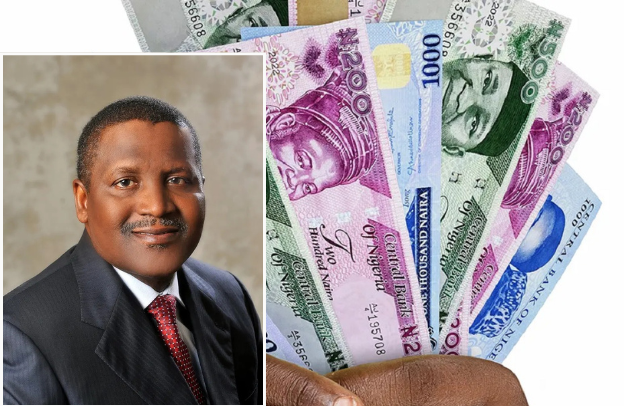Aliko Dangote: The Life, Vision, and Legacy of Nigerian and Africa’s Richest Entrepreneur

Aliko Dangote is a transformative figure whose name has become synonymous with African industrial power, his life story is a compelling narrative of vision, perseverance, and a deep-seated belief in the potential of his continent. More than simply a tale of wealth, his journey from a young trader to the richest man in Africa is a testament to the power of self-reliance and the importance of building an enduring legacy.
Learn How to Leverage Your Story through our Story To Asset Framework.
For a new generation, his story is a beacon, a powerful example of how one person’s ambition can not only create a business empire but also drive economic development and inspire hope across a continent.
The story of Aliko Dangote is a great inspiration to us, which is why we are honored to feature him today. With more than 1,000 interviews on the Obehi Podcast, host Obehi Ewanfoh has made it his mission to spotlight the voices of people across the African diaspora who are creating real change.
Through his signature service, Life & Legacy Story, he helps individuals aged 50 and above document their life journeys, preserving their wisdom and experiences for future generations to learn from and be inspired by.
From Family Roots to Entrepreneurial Beginnings
Born in 1957 in Kano State, Nigeria, Aliko Dangote’s entrepreneurial spirit was nurtured from a young age within a family deeply ingrained in commerce. His maternal grandfather, Sanusi Dantata, was a hugely successful commodities trader and one of Kano’s wealthiest men. Growing up in this environment, Dangote was exposed to the inner workings of business and the value of hard work.
He famously recalled selling sweets to his classmates in primary school, an early sign of the business acumen that would come to define his life. This foundation, built on the traditions of trade and a keen eye for opportunity, would prove to be the bedrock of his future success. It taught him that while he came from a privileged background, true success was earned, not inherited.
Early Life & Influences:
- Born in 1957 in Kano State, Nigeria.
- Influenced by his maternal grandfather, Sanusi Dantata, a successful commodities trader.
- Showed early entrepreneurial drive by selling sweets in primary school.
Academic Journey:
- Graduated from Egypt’s prestigious Al-Azhar University at age 21.
- Returned to Nigeria with a clear business vision.
The Path to an Empire: Trading, Manufacturing, and Diversification
After graduating, Dangote returned to Nigeria with a single, audacious idea. He borrowed $3,000 from his uncle to start a small trading business, importing agricultural commodities like rice and sugar and selling them to local consumers. His venture was an instant success, and he was able to repay the loan in just three months.
See also Rooted Revival: How Dangote’s Fertilizer Push Could Signal a New Chapter in Africa
This rapid triumph wasn’t just luck; it was a result of his strategic approach to business. He understood the market, the needs of the people, and the value of cutting out the middleman. This philosophy of localizing production would become the cornerstone of his empire.
Initial Business Venture:
- Borrowed $3,000 from his uncle to start a commodities trading business.
- Imported goods like rice from Thailand and sugar from Brazil.
- Repaid the loan within three months, showcasing early success and strategic insight.
The Shift to Manufacturing:
- Recognized Nigeria’s over-reliance on imported goods.
- Began investing in local manufacturing plants for pasta, sugar, salt, and flour in the 1990s.
- This strategic move transformed him from a trader to a leading industrialist.
Dangote Cement: The Crown Jewel
However, it is Dangote Cement that started as his crown jewel of empire. In 2005, he constructed a massive cement manufacturing plant, financed with a combination of his personal wealth and international loans.
This project was a powerful statement: he was not just building a factory; he was building a nation’s capacity for growth. Today, Dangote Cement is the largest cement producer in Africa, with operations in ten countries.
| Country | Plant/Location(s) | Capacity (Mta) | Notes |
| Nigeria | Obajana (Kogi) | 16.25 | Largest cement plant in Africa, 5 production lines |
| Ibese (Ogun) | 12.00 | Fully integrated plant | |
| Gboko (Benue) | 4.00 | Fully integrated plant | |
| Okpella (Edo) | 3.00 | Fully integrated plant | |
| Total Nigeria | 35.25 | About 32.25 Mta is reported in some sources | |
| Cameroon | Douala | 1.50 | Grinding plant |
| Congo | Mfila | 1.50 | Integrated plant |
| Ethiopia | Mugher | 2.50 | Integrated plant |
| Ghana | Tema | 2.00 | Grinding plant |
| Senegal | Pout | 1.50 | Integrated plant |
| Sierra Leone | Freetown | 0.50 | Import & bagging terminal |
| South Africa | Aganang & Delmas | 2.80 | Integrated & grinding plants |
| Tanzania | Mtwara | 3.00 | Integrated plant |
| Zambia | Ndola | 1.50 | Integrated plant |
| TOTAL AFRICA | 52.0 | Operations in 10 African countries |
The company’s success is a direct result of Dangote’s belief in reinvesting profits back into the business, a strategy he has consistently championed. In a 2013 interview, he famously stated, “We do not keep money in the bank. We fully invest whatever we have, and we keep on investing.”
This relentless focus on growth has allowed him to build a business that is not just profitable but also a major driver of employment and infrastructure development across the continent.
- Key Highlights of Dangote Cement:
- The largest cement producer in Africa.
- Operates in 10 African countries.
- Its success is a result of Dangote’s strategy of reinvesting profits into the business.
Philanthropy and Broader Impact
Beyond his business ventures, Dangote’s influence extends into the world of philanthropy. Through the Aliko Dangote Foundation, which he established in 1994, he has committed vast resources to improving the lives of people across Africa.
The foundation, now the largest private foundation in sub-Saharan Africa, focuses on critical areas like health, education, and economic empowerment. One of the most significant and celebrated collaborations of the foundation was its partnership with the Bill and Melinda Gates Foundation to combat polio.
This collective effort played a crucial role in the successful eradication of wild polio across the African continent in 2020, a landmark achievement that showcased the profound impact of strategic, private-sector philanthropy on public health.
The Aliko Dangote Foundation:
- Established in 1994, it is the largest private foundation in sub-Saharan Africa.
- Focuses on health, education, and economic empowerment.
- Notable for its partnership with the Bill and Melinda Gates Foundation to eradicate polio in Africa.
The Power of a Preserved Story
The story of Aliko Dangote is a powerful reminder of the importance of preserving the narratives of Africa’s influential figures. For those of us who believe in the continent’s potential, his journey provides a blueprint for what can be achieved through unwavering determination and a commitment to building for the long term.
His story is not just about a businessman; it’s about a nation-builder, an industrialist who has demonstrated that Africa’s economic destiny is in its own hands. It teaches us that while the journey to success may not be a “rags-to-riches” story for everyone, the principles of hard work, strategic reinvestment, and a vision that extends beyond personal gain are universal.
In celebrating the life and legacy of Aliko Dangote, we do more than just acknowledge his achievements. We honor a man who, by staying rooted in his home country and believing in its potential, helped to redefine what is possible for African entrepreneurs on the global stage.
His legacy is etched in the factories he built, the jobs he created, and the lives he has improved through his philanthropy. It is a story that future generations must not forget, for it serves as a powerful testament to the fact that with vision and courage, we can all contribute to a brighter and more prosperous Africa.
Learn How to Leverage Your Story through our Story To Asset Framework.





